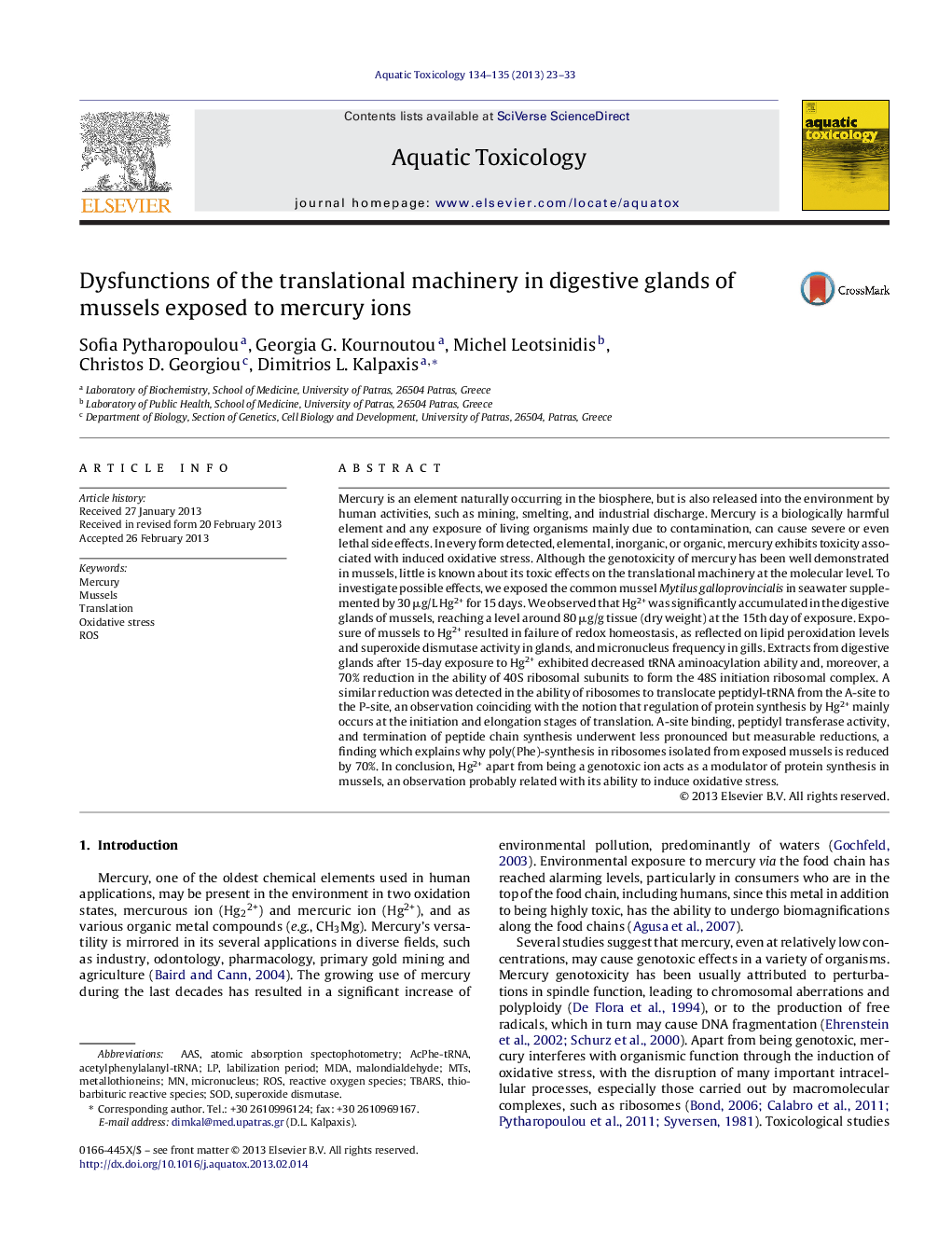| کد مقاله | کد نشریه | سال انتشار | مقاله انگلیسی | نسخه تمام متن |
|---|---|---|---|---|
| 4529509 | 1625965 | 2013 | 11 صفحه PDF | دانلود رایگان |

Mercury is an element naturally occurring in the biosphere, but is also released into the environment by human activities, such as mining, smelting, and industrial discharge. Mercury is a biologically harmful element and any exposure of living organisms mainly due to contamination, can cause severe or even lethal side effects. In every form detected, elemental, inorganic, or organic, mercury exhibits toxicity associated with induced oxidative stress. Although the genotoxicity of mercury has been well demonstrated in mussels, little is known about its toxic effects on the translational machinery at the molecular level. To investigate possible effects, we exposed the common mussel Mytilus galloprovincialis in seawater supplemented by 30 μg/L Hg2+ for 15 days. We observed that Hg2+ was significantly accumulated in the digestive glands of mussels, reaching a level around 80 μg/g tissue (dry weight) at the 15th day of exposure. Exposure of mussels to Hg2+ resulted in failure of redox homeostasis, as reflected on lipid peroxidation levels and superoxide dismutase activity in glands, and micronucleus frequency in gills. Extracts from digestive glands after 15-day exposure to Hg2+ exhibited decreased tRNA aminoacylation ability and, moreover, a 70% reduction in the ability of 40S ribosomal subunits to form the 48S initiation ribosomal complex. A similar reduction was detected in the ability of ribosomes to translocate peptidyl-tRNA from the A-site to the P-site, an observation coinciding with the notion that regulation of protein synthesis by Hg2+ mainly occurs at the initiation and elongation stages of translation. A-site binding, peptidyl transferase activity, and termination of peptide chain synthesis underwent less pronounced but measurable reductions, a finding which explains why poly(Phe)-synthesis in ribosomes isolated from exposed mussels is reduced by 70%. In conclusion, Hg2+ apart from being a genotoxic ion acts as a modulator of protein synthesis in mussels, an observation probably related with its ability to induce oxidative stress.
► Exposure of mussels to Hg2+ results in genotoxicity in gills.
► Exposure of mussels to Hg2+ results in oxidative stress in digestive glands.
► Reductions of translation by Hg2+ mainly occur at the initiation and elongation stages.
► Termination of translation undergoes less pronounced, but measurable reductions.
Journal: Aquatic Toxicology - Volumes 134–135, 15 June 2013, Pages 23–33